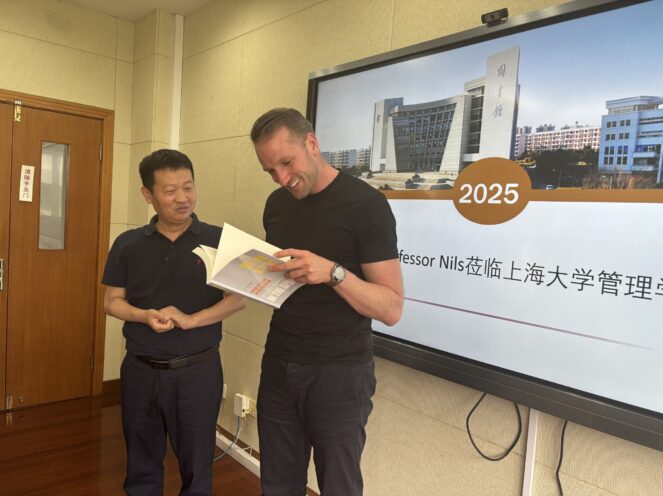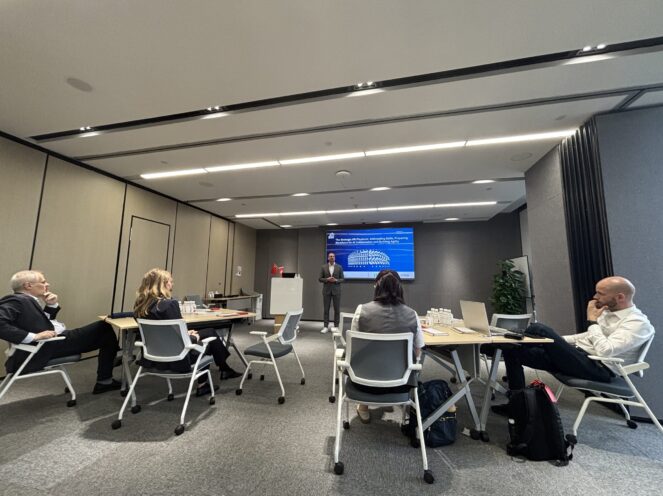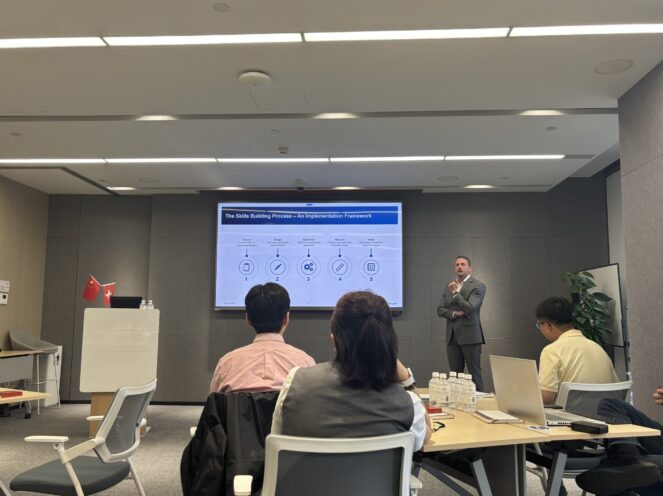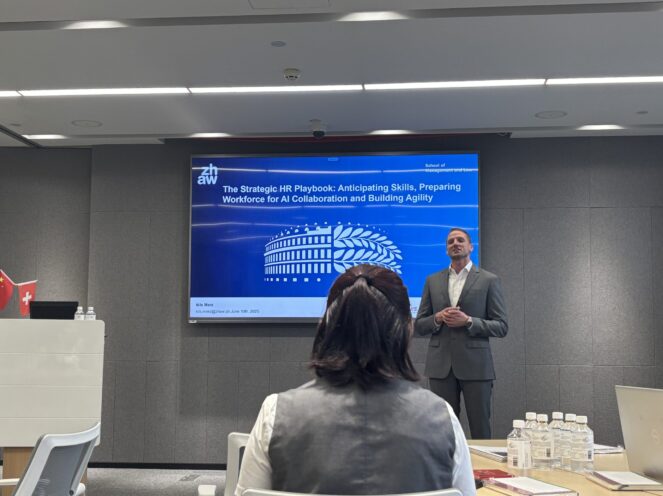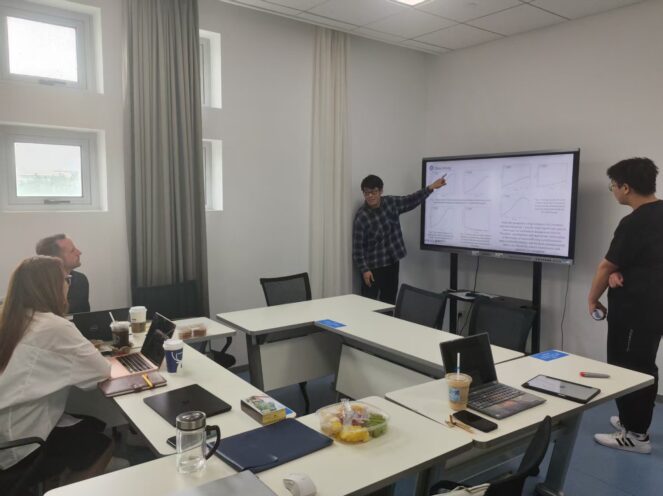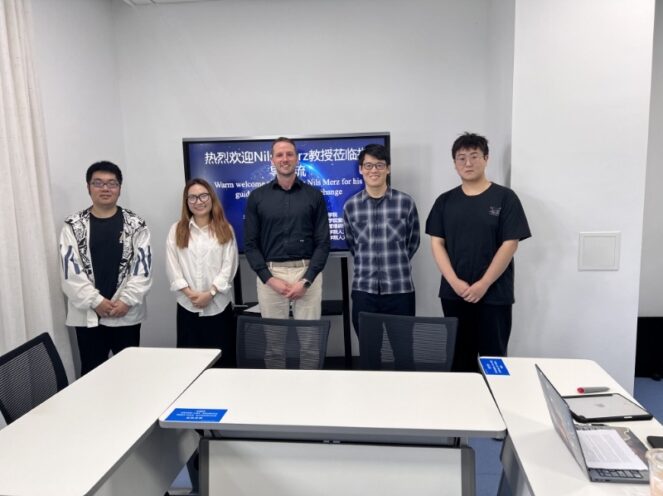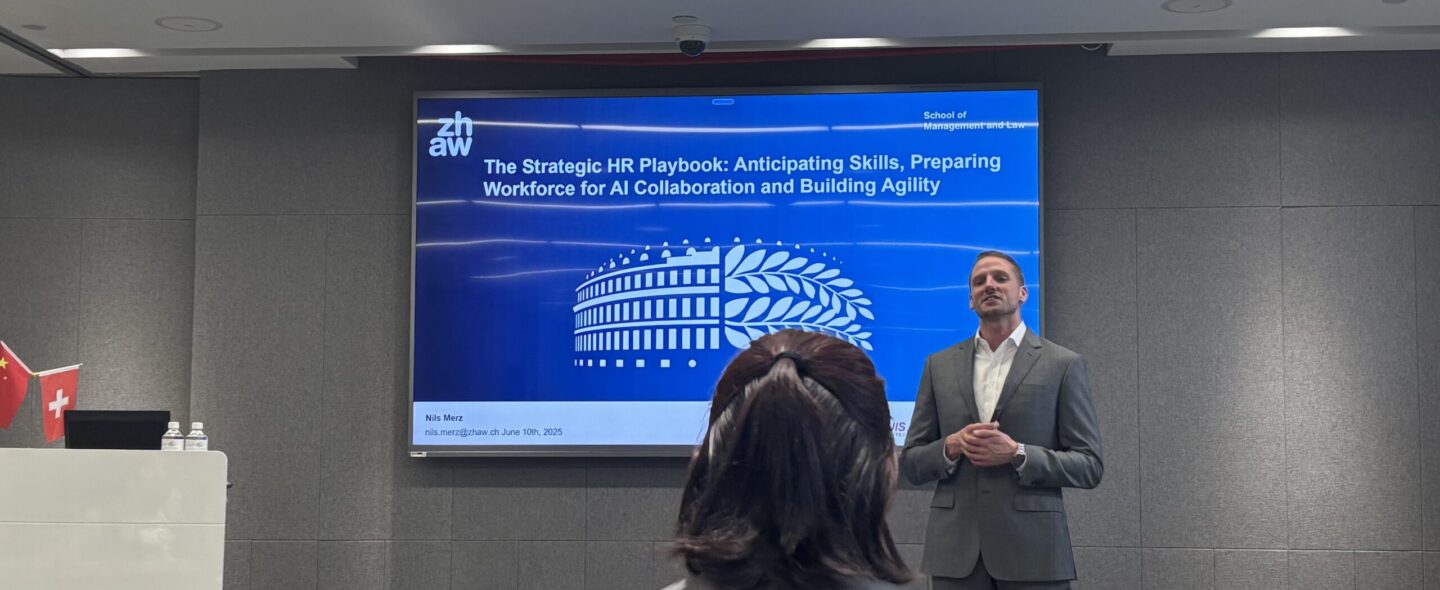

Nils Merz is a Research Associate at ZHAW Zurich University of Applied Sciences, where he teaches Human Capital Management and oversees a new continuing education program on Artificial Intelligence in Organizations.
What are your key takeaways from your time here, both professionally and personally?
Professionally, I found that China is significantly ahead in AI and more open to technological innovation compared to what I have seen elsewhere. This openness, although not entirely surprising given my experiences in other Asian countries, was impressive, particularly in the realm of AI.
From an academic perspective, I had the opportunity to meet outstanding professionals in their respective fields. I am currently collaborating with two of them on a research paper. I plan to reconnect with one of them soon. Additionally, I facilitated a connection between a professional in the AI field in China and a counterpart in my home country to potentially kickstart a collaboration.
Personally, understanding the attitude towards technology and AI was a substantial personal learning experience for me. However, even more impactful was the opportunity to interact with locals directly. Not only were they respectful professionals, but they were also incredibly kind and humble people.
What unique opportunities or challenges did you notice when comparing your field of expertise in Switzerland and China? How can the two countries collaborate more effectively?
For various reasons, China is much more privileged when it comes to data collection and efficient execution while we are struggling sometimes in these areas. Moreover, China is at the forefront of research output when it comes to AI in specific organizational settings. However, most of this research is concentrated in China, and aligning the research questions in both countries could not only improve the academic knowledge and benefit the industry, but also strengthen the relationship between these two countries.
How did the program align with your expectations?
The program exceeded my initial expectations. Initially, I held high hopes but had started to doubt them before the program formally began, as it seemed challenging to connect with relevant people. However, upon arriving in Shanghai and witnessing the Swissnex team’s efforts in arranging more meetings, I was happy and thanks to their dedication and the connections I made through these meetings, my expectations were substantially exceeded.
Is there anything else you’d like to share about your experience, or what advice would you give to others considering a similar sabbatical?
It’s a great opportunity and anyone who has the chance to participate should do so. It’s highly rewarding, both personally and professionally.
ZHAW-Swissnex Staff Mobility Program
For over a decade, the Zurich University of Applied Sciences (ZHAW) has partnered with Swissnex in a staff mobility program that brings international exchange and learning to the university.
By providing tailored connections, local insights, and structured support, Swissnex enables ZHAW staff to expand their professional horizons internationally. Through this special program, Swissnex leverages its global network to not only help ZHAW staff broaden their international and interdisciplinary perspectives, but also support ZHAW’s strategic goal of building a globally connected academic community.
Any ZHAW faculty and staff can choose to travel to any of the six main Swissnex locations. Each offers a unique local ecosystem of experts and researchers.
Short-Term Sabbaticals for Swiss Researchers in China
If you’re a Swiss researcher curious about what’s happening in China’s academic and innovation scenes, our tailored research trips might just be a good fit.
The sabbatical program is an integral part of our effort to foster collaboration and exchange between Switzerland and China, offering Swiss researchers the opportunity to engage directly with China’s academic and innovation ecosystems while strengthening their contextual understanding of China and their collaboration with local partners.
Through customized research trips, participants gain valuable insights into China’s latest developments in their fields, while building connections with leading academic institutions, research centers, and industry partners. By facilitating these exchanges, Swissnex in China creates opportunities for Swiss researchers to deepen their knowledge, establish cross-border collaborations, and explore areas of shared interest.
Each trip is tailored to the specific needs of the researcher, ensuring that the experience is aligned with their professional objectives. From organized study visits to running a public event, we provide a platform for Swiss researchers to engage with China’s academic and innovation communities in a meaningful and impactful way. The sabbatical can be adjusted to a duration ranging from 1 week to a couple of months.
If you are interested in a sabbatical, explore our academic programs and initiatives, and please fill out this form.
